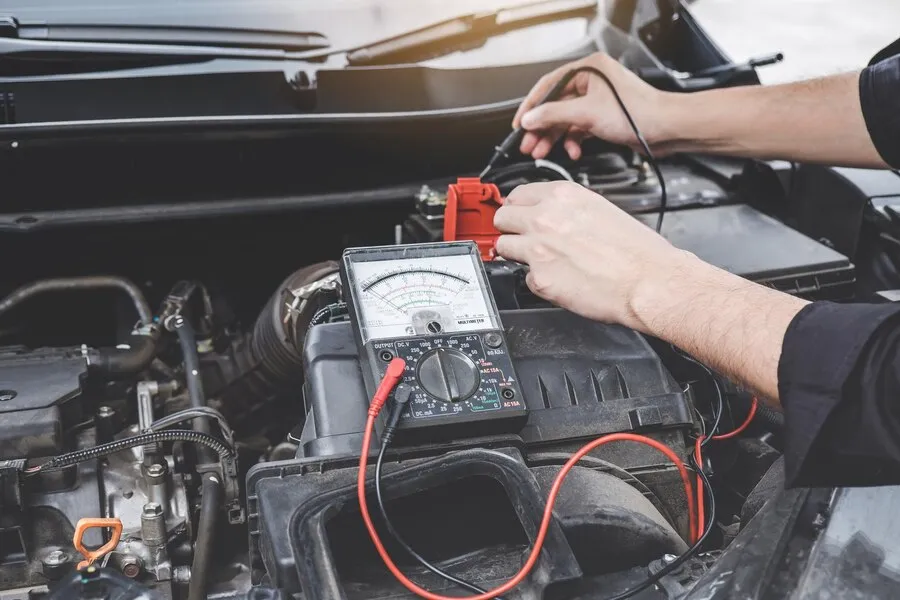Key Takeaways:
- Deep understanding of how alternators are critical to vehicle electrical systems.
- Insights into maintaining alternator health for optimal vehicle performance.
- Discussion on the future of alternator technology and its implications for the automotive industry.
Introduction
The modern vehicle is a marvel of engineering in which each part plays a significant role in overall performance. One such critical component is the alternator, which remains enigmatic to many drivers. Primarily responsible for powering the vehicle’s electrical system and keeping the battery charged, its failure often results in inconvenient breakdowns or costly repairs. This article aims to demystify the alternator, guide readers through its functions and maintenance, and explore the emerging technologies expanding its role in the automotive industry.
Choosing the Right Alternator for Your Vehicle
In the vast ecosystem of automotive parts, the alternator stands out as one tailored to your vehicle’s specific needs. With advancements in-car technology, the variety of alternators has expanded, and choosing an ill-suited model can lead to incompatibility and performance issues. Factors such as electrical load, engine type, and additional accessory demands must be weighed when selecting an alternator. Professional advice is invaluable here, as replacing an alternator without careful consideration can do more harm than good to the intricate electrical balance within modern vehicles.
The Function of an Alternator
At the core of your vehicle’s electrical system lies the alternator, which generates electrical energy from the engine’s mechanical motion. It plays a crucial part in recharging the car battery and sustaining the electrical charge required to operate systems such as the ignition, lights, starters, and infotainment. If the alternator fails, these systems might not function correctly, possibly leading to a breakdown. Indicative symptoms of a failing alternator may include dimming lights, electrical malfunctions, or a dead battery, which cannot be attributed to a bad battery alone.
The Impact of Alternator Efficiency on Vehicle Performance
An efficient alternator is not just about keeping the lights on; it influences your vehicle’s performance at a foundational level. A fully functional alternator minimizes the engine’s workload by efficiently managing the power distribution to various onboard electronics. This optimal distribution significantly affects fuel efficiency, reducing the unnecessary power strain that could lead to reduced performance and higher fuel consumption. Timely detection of alternator inefficiencies, such as whining noises or difficulty starting the engine, can stave off these undesirable effects.
Maintenance Tips for Prolonging Alternator Life
Many car owners overlook the maintenance of their alternator, leading to premature failure and avoidable repair bills. Simple preventative measures can significantly extend the life of this vital component. Periodically checking for belt wear and tightness, ensuring that the alternator is free of dirt and debris, and observing for unusual noises are all practices that should become part of any vehicle owner’s routine. These proactive steps, alongside regular professional check-ups, will keep the alternator functioning at its peak and safeguard your vehicle from unexpected electrical pitfalls.
Innovations in Alternator Technology
The industry’s relentless push for more efficient and environmentally friendly technologies has evolved alternators significantly. Today’s alternators are far more sophisticated than their predecessors, with features like compact designs, enhanced durability, and better output to accommodate the ever-increasing electrical demands of new vehicle gadgets and features. Developments in regenerative braking systems, where alternators assist in recapturing energy, are setting the stage for even more advanced applications. An insightful analysis by the Green Car Congress delves deeper into such innovations.
The Role of the Alternator in Hybrid and Electric Vehicles
Hybrid and electric vehicles (EVs) require specially designed alternators to handle unique electrical architectures. While traditional gas-powered engines use alternators to charge the battery, hybrids and EVs typically use regenerative braking. However, alternators may still be found in these vehicles to power auxiliary systems, requiring them to be highly efficient so as not to detract from the vehicle’s overall energy efficiency. This is a burgeoning area of innovation as engineers strive to incorporate alternators into high-demand and fluctuating power conditions characteristic of hybrid and electrical vehicular technology.
Read Also: Unveiling the Long-Term Benefits of Electrolysis for Hair Removal
How to Diagnose Alternator Issues
Recognizing the early signs of alternator distress is crucial for any vehicle owner. Symptoms can range from subtle to apparent:
- Dimming headlights
- Warning lights on the dashboard
- Slow or malfunctioning accessories
- An unusual battery drain
To confirm suspicions of an alternator issue, the charging system can be tested with a voltmeter or an ammeter or by inspecting the alternator for loose belts or connections. The presence of any such issue warrants prompt inspection and testing by a trained automotive technician to avoid more significant damage to the vehicle’s electrical system.
DIY Alternator Replacement vs. Professional Installation
An alternator replacement is a suitable challenge for the confident DIYer. While some might have the necessary expertise, many aspects of this task, such as ensuring proper alignment, belt tension, and correct wiring, could easily be handled by someone with the right experience. A flawed DIY attempt can lead to further complications or even dangerous consequences. Hence, it is generally advisable to leave the replacement of an alternator in the hands of a professional mechanic. Not only does it assure safety, but it also guarantees that your vehicle’s alternator is optimally integrated into the electrical system.
Cost Considerations of Alternator Repairs
Repairing or replacing an alternator is an investment in your vehicle’s future. Costs can vary depending on the make and model of the car, as well as the price of parts and labor. Off-brand alternators may offer initial savings, but the longevity and reliability of OEM (Original Equipment Manufacturer) parts often justify their higher price point. Considering the alternator’s critical role in your vehicle’s operation and longevity, skimping on quality can result in more frequent replacements and increased downtime. For a deeper exploration of the financial aspect of alternator repairs, the Automotive News provides an informative perspective on the subject.



